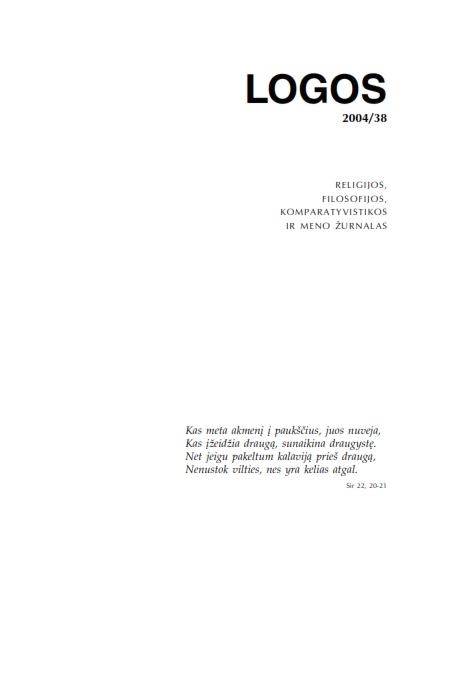Intelekto antrojo veiksmo aiškinimas scholastinėje logikoje Lietuvoje XVI a. antrojoje pusėje
The Interpretation of the Second Operation of the Human Intellect in Scholastic Logic in Lithuania in the Second Half of the Sixteenth Century
Author(s): Vytis ValatkaSubject(s): Logic, Early Modern Philosophy, Existentialism, Analytic Philosophy, Philosophy of Mind, 16th Century
Published by: Visuomeninė organizacija »LOGOS«
Keywords: Second operation of the intellect; proposition; necessary proposition; subject; predicate; major logic;
Summary/Abstract: The analysis of the second operation of the human intellect presented in lectures on logics by the main representatives of scholastic logic in Lithuania of the second half of the sixteenth century, Marcin Úmiglecki and Diego Ortiz, virtually belongs to the so-called major logic (logica major). That is, the cardinal object of the above-mentioned analysis was the content of proposition. On the other hand, such an analysis involved some elements of dialectics, or minor logic (logica minor sive dialectica), namely, certain rules of logical square and conversion. Following the Aristotelian-scholastic tradition, Úmiglecki and Ortiz defined the proposition as a correct or false sentence (oratio vera sive falsa). Meanwhile, opposition, equivalence (aequipollentia) and convertibility were regarded as the main properties of proposition (propria propositionis). These properties were also interpreted in the spirit of the scholastic tradition. Úmiglecki and Ortiz traditionally considered necessary propositions the main elements of scientific knowledge. As for the terms of necessary proposition, it was affirmed that neither subject nor predicate ought to bear actual existence. That is, two conditions alone are necessary for these terms: a) there must be at least a logical potentiality (potentia logica) for the existence of a subject (that is, the subject needs not be a contradictory being, such as a circular square); b) such an existence having been assumed, the predicate must be inseparable from the existing subject.
Journal: LOGOS - A Journal of Religion, Philosophy, Comparative Cultural Studies and Art
- Issue Year: 2004
- Issue No: 38
- Page Range: 33-40
- Page Count: 8
- Language: Lithuanian

